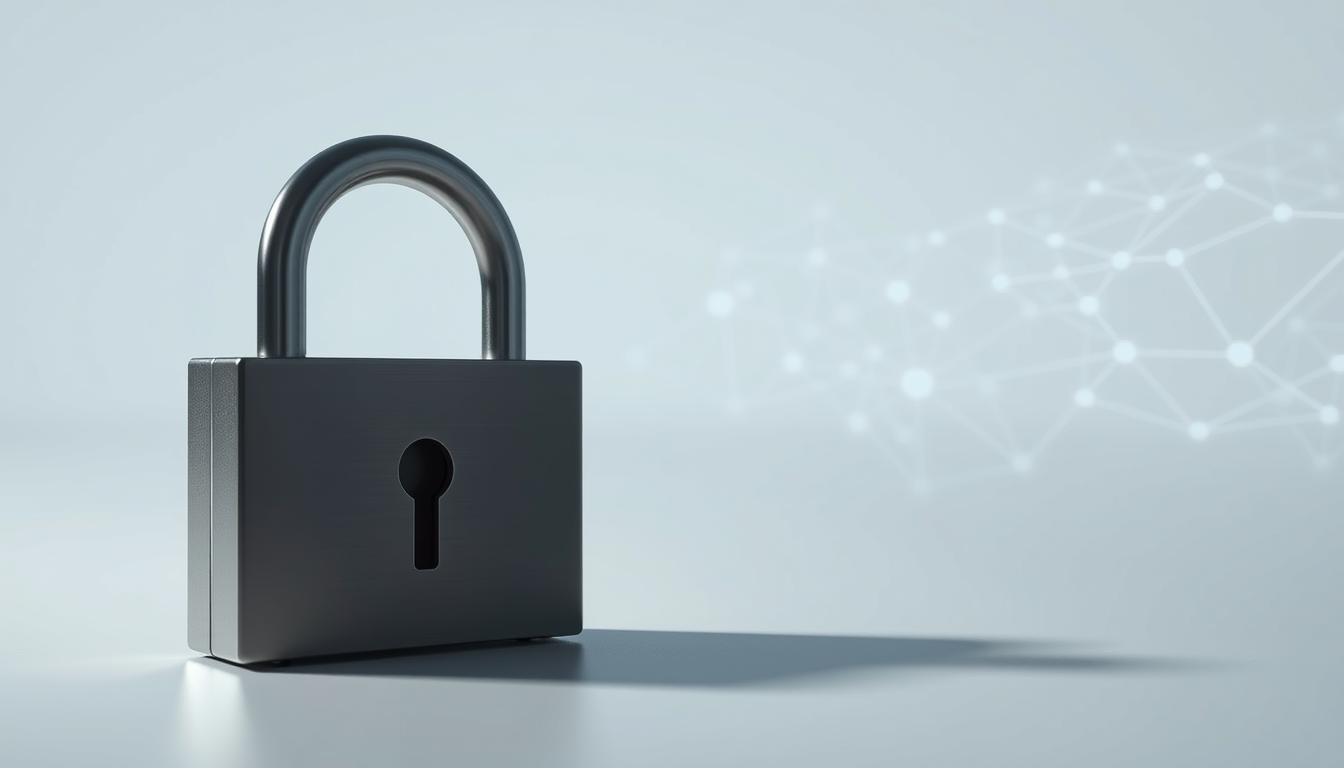Safeguarding your personal information has become a top priority in our connected world. Every action online can leave a trail. So, it’s important to stay ahead in protecting your online security.

When you’re online, you face many dangers of data misuse. But knowing how to protect your data privacy helps you stay safe. You can control your digital life and avoid risks.
Key Takeaways
- Understand the risks associated with data misuse
- Discover why protecting your personal data matters more than ever in the digital age.
- Discover practical ways to safeguard your online security
- Take control of your digital presence
- Minimize potential threats to your personal information
Understanding the Value of Your Digital Footprint
Your digital footprint is a collection of data that holds great value. It’s important to understand this. As you use the internet, companies collect and use your personal data. They often do this in ways you might not see right away.
What Personal Data Is Collected About You
When you surf the web, your browsing history, search queries, and online actions are tracked. This data falls into several categories:
- Demographic information like age, gender, and location.
- Device and browser info, including IP addresses and device IDs.
- Behavioral data, like how you interact with websites and ads.
Companies use technologies like cookies and tracking pixels to gather this data. They use it to create detailed profiles of you

How Companies Use Your Information
The data they collect is mainly for targeted advertising. This means ads are tailored to your interests and online actions. Your data also helps with:
Understanding how your information is collected and shared is essential for maintaining online privacy. By understanding data collection, you can take steps to keep your information safe. This includes using data protection measures.
Sharing less online is a good way to manage your digital footprint. Being careful about what you share can help prevent misuse of your data.
Essential Strategies to Protect Personal Data Online
In today’s world, keeping your personal info safe is key. You must be proactive and use smart strategies to protect your data.
Limiting What You Share on Social Media
Social media is a place where data is often collected. By limiting what you share online, you can lower the risk of your data being used wrongly. Be careful about what you post and adjust your privacy settings to control who sees your content.

Using Strong, Unique Passwords
Use strong, unique passwords for every account to prevent unauthorized access—reusing the same password puts all your accounts at risk. Don’t use the same password everywhere, as it makes it easier for hackers to get into your accounts. Think about using a password manager to help you create and keep track of complex passwords.
Avoiding Public Wi-Fi Networks for Sensitive Activities
Public Wi-Fi is not secure, making it easy for hackers to get your data. Avoid using public Wi-Fi for sensitive activities like online banking or shopping. If you must use public Wi-Fi, use a VPN to encrypt your internet traffic.
By following these tips, you can greatly improve your online security and keep your personal data safe. Remember, protecting your data is an ongoing task that needs constant attention and updates to your security measures.
Leveraging Privacy Tools and Settings
To keep your digital life private, using privacy tools and settings is key. This helps protect your personal data from misuse. It’s about knowing the privacy tools and how to use them right.
Encrypted Messaging and Email Services
Securing your online chats starts with encrypted messaging and email services. Encryption makes sure only the sender and receiver can read messages and emails. Services like Signal and ProtonMail are safer than regular ones because they use end-to-end encryption.
When picking encrypted services, look for clear privacy policies and strong privacy laws in their countries. This helps keep your data safe from unwanted sharing.
Browser Privacy Extensions and Settings
How you browse the web is also important for privacy. Browser privacy extensions block trackers and ads, making your browsing safer. Tools like uBlock Origin and Privacy Badger are great at this.
Also, tweaking your browser’s privacy settings helps. Using incognito mode stops your history from being saved. You can also block third-party cookies and turn off location tracking

Managing Cookie Preferences Effectively
Cookie management is crucial for digital privacy. Cookies track your online activities. Some are needed for websites to work, but others can invade your privacy.
To manage cookie preferences effectively, check and change your cookie settings often. You’ll find these in your browser’s privacy or security settings. Choosing to block non-essential cookies reduces data collection about you.
Browser extensions that handle cookies, like those that clear or block third-party cookies, boost privacy. Managing cookie permissions and clearing them regularly can enhance your browsing privacy and online security.
Defending Against Modern Privacy Threats
Modern privacy threats are getting more complex. It’s crucial to stay updated and defend yourself. As you explore the digital world, you face many risks that could harm your personal data.
Recognizing and Avoiding Phishing Attempts
Phishing scams are a big threat to your online privacy. These scams try to get sensitive info like passwords or credit card numbers by pretending to be trustworthy. To watch out for phishing scams, be careful with emails or messages that:
- Ask for personal or financial information
- Encourage quick action by highlighting the need to act without delay.
- Contain spelling and grammar errors
- Use suspicious links or attachments
To avoid phishing, check if requests are real by contacting the sender through official channels.
Securing Smart Devices and IoT Products
More smart devices and IoT products mean more privacy risks. To keep your smart device privacy safe, follow these tips:
- Change default passwords to strong, unique ones
- Regularly update device firmware and software
- Disable unnecessary features and services
- Use a secure network for device connections
Understanding AI Data Collection and Tracking
AI data tracking uses artificial intelligence to gather and analyze lots of personal data. This information is often used to build in-depth user profiles and anticipate future actions. To grasp the privacy impact of AI data tracking:
- Know how your data is collected and used
- Adjust privacy settings on devices and apps
- Use privacy-focused browsers and search engines
- Consider using data protection tools and services
By being informed and proactive, you can protect your privacy in a world where AI-driven data collection is common.
Conclusion: Taking Control of Your Digital Privacy
Protecting your personal data is a constant task that needs focus and a strong commitment to confidential data protection. Knowing the importance of your digital footprint and using privacy best practices can greatly lower the chance of your info being leaked.
It’s key to keep up with data protection laws like GDPR in today’s digital age. These laws help protect your rights and give guidelines for how companies should manage your personal data.
By sharing less on social media, using strong passwords, and using privacy tools, you can have a safer online life. Always check and update your privacy settings and be careful with public Wi-Fi to boost your digital safety.
Applying the advice in this guide empowers you to control your online privacy more effectively.. This will help you keep your personal data safe and secure in our changing digital world.


GIPHY App Key not set. Please check settings